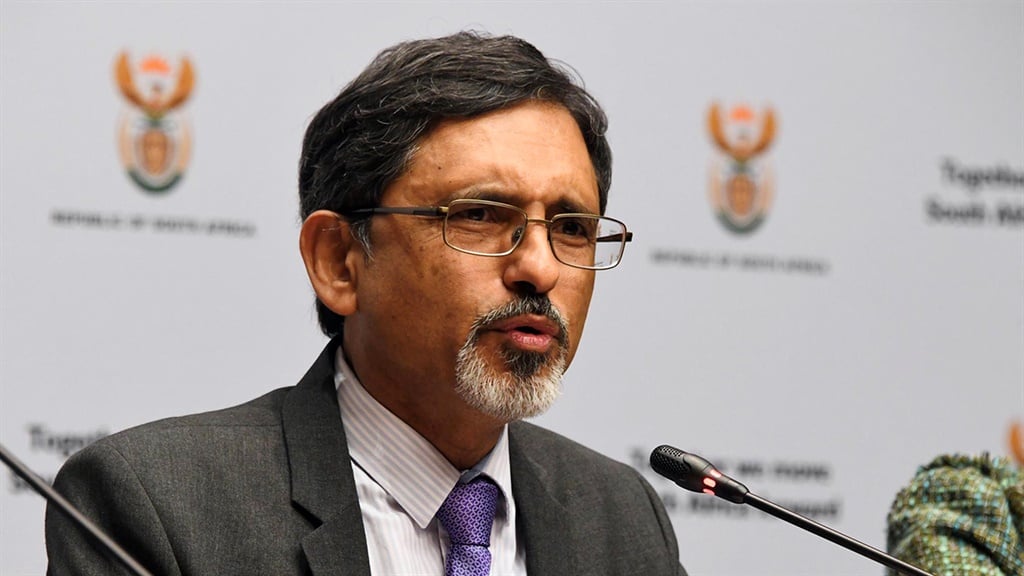
- Patel says the sugar and steel industries in South Africa are being undermined by overcapacity and cheap imports.
- With excess steelmaking capacity, reduced demand - consumption is forecast to contract below 3.5 million tonnes in 2020.
- South Africa faces a shrinking market in sugar, as share of the regional local market shrunk from 1.6 million tons to 1.2 million tons.
Minister of Trade, Industry and Competition Ebrahim Patel, told Parliament's Portfolio Committee on Trade and Industry that the sugar and steel industries in South Africa have been allowed to operate in the country during the lockdown, but were still being undermined by dynamics such as oversupply and cheap imports.
In the sugar industry, South Africa is faced with a shrinking market because of cheaper supplies from Eswatini, where South Africa's share of the Southern African Customs Union's local market shrunk from 1.6 million tons to 1.2 million tons, the lowest levels since 1983.
In the steel industry, the excess steelmaking capacity, reduced demand and cheap imports from larger economies like China have placed the industry in a quandary, with consumption contracting to the point where it is forecast to be below 3.5 million tonnes in 2020.
The department announced over the weekend that Patel had tested positive for Covid-19. Patel told the committee through a virtual meeting on Tuesday morning that the two industries would need assistance as it faced multiple market disadvantages.
"The challenges in the milling industry come at a time when we have overcapacity in milling. It is the most difficult moment to navigate the space, but we are intervening.
"In the steel industry, we need to constantly monitor imports and avoid dumping. This is at the heart of short-term measures in the steel industry. We have to do this in the context of international agreements and appreciate that because there is a global over supply, prices are low," said Patel.
Chief Director of Agro-Processing at the Department of Trade and Industry, Ncumisa Mcata-Mhlauli said the department developed a master plan to enable growth in the sugar industry, as the crisis in the industry threatened thousands of jobs.
Patel's sectoral advisor Harald Harvey said seven steps in stabilisation strategy - the Sugar Master Plan - sought to make room in the market for the consumption of locally produced sugar while harmonising with other producers in the region like in Eswatini.
"The first step of our stabilisation is restoring local demand and addressing cheap imports. Within the first year, we hope to get 80% of all of the country's sugar requirements sourced locally with a view of working it up to 95% in three years," said Harvey.
Harvey said 80% of sugar farmers in the local sugar industry were small scale and needed to be kept active and set up for a sustainable future. He said transformation of the sector and assisting small scale farmers to diversify into functions such as biofuels and plastics were also a priority.
Director of Primary Metals Processing Umeesha Naidoo said excess global steelmaking capacity of about 440 million tonnes continued to be the biggest challenge in the global steel sector, particularly considering the slow global economic growth.
"Increasing price volatility, global trade, margin pressure and rising debt are creating difficult operating conditions for steel makers and steel manufacturers - developing economies, including SA, are disproportionally [sic] affected," said Naidoo.
Naidoo said the pandemic and the lockdown accelerated the effects of low demand, over capacity, weak balance sheets and liquidity challenges impacting the viability of an industry that was already in distress.
She said government already announced relief funding for companies in distress, support for small and medium enterprises, tax relief and limits on imports to enable companies to ramp-up production to supply domestic markets.
Naidoo said the department's work included assisting beleaguered companies, including ArcelorMittal SA.
AMSA wanted a R4 billion savings on their annual cost base from suppliers and labour. Government secured commitments in excess of R500m from Eskom, Transnet and Kumba, which AMSA rejected, as it was not enough to save the plant, Naidoo said.
When he tabled his budget vote last week, Patel said the Covid-19 pandemic made the Department of Trade and Industry's transformation policies even more urgent, as smaller and newer businesses needed to be positioned to benefit from South Africa's economic recovery after the pandemic.




 Publications
Publications
 Partners
Partners











